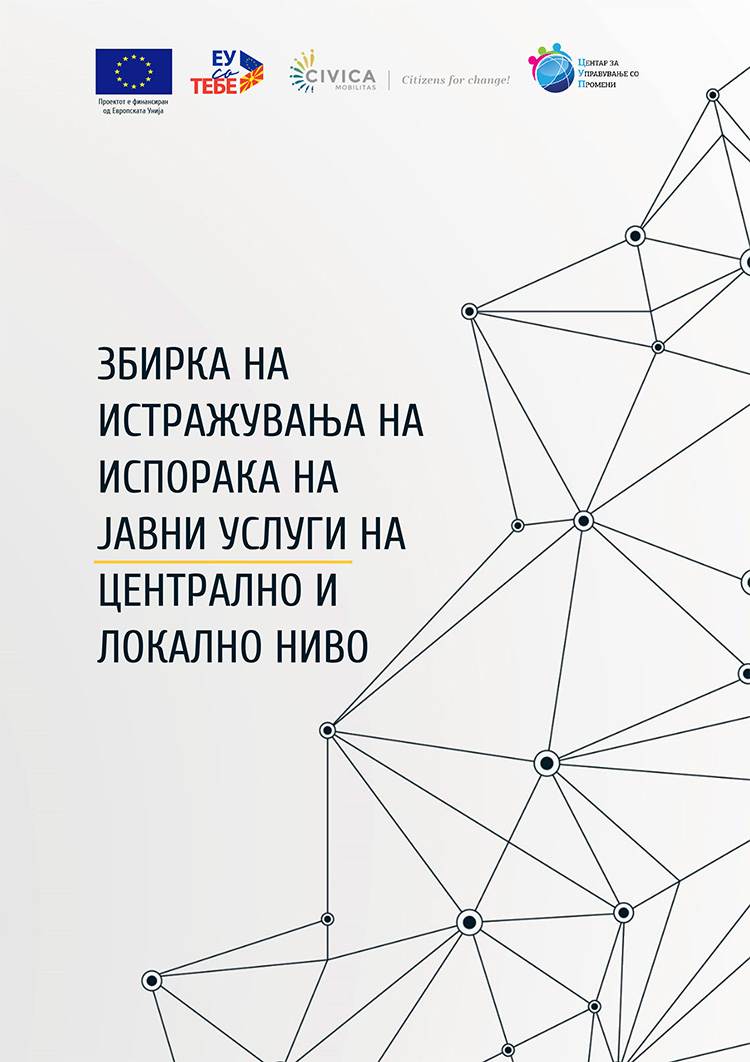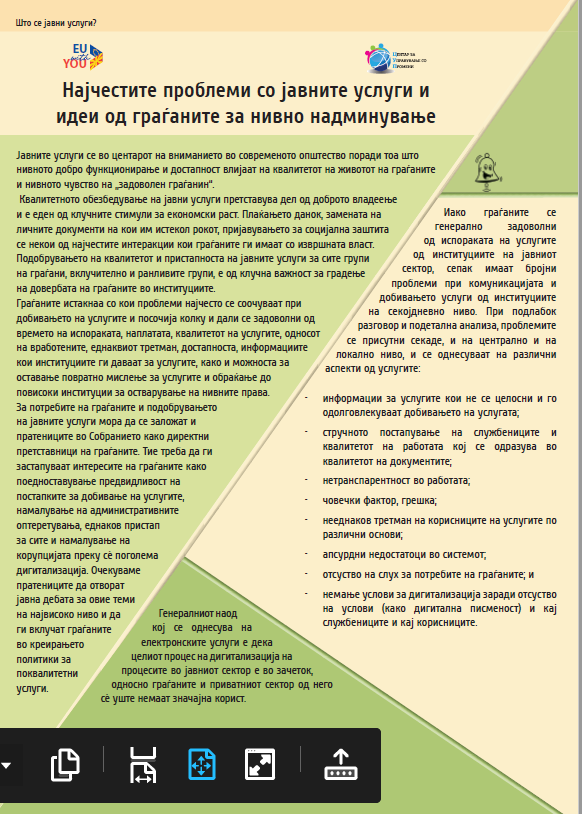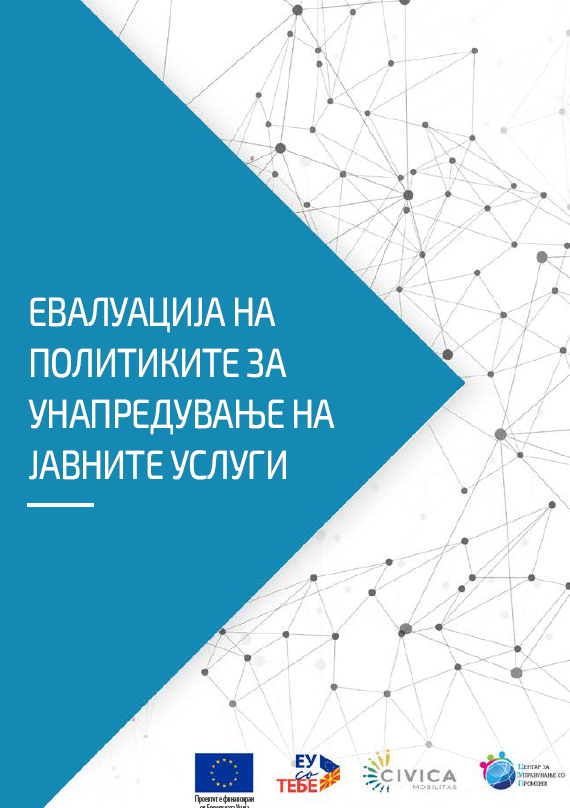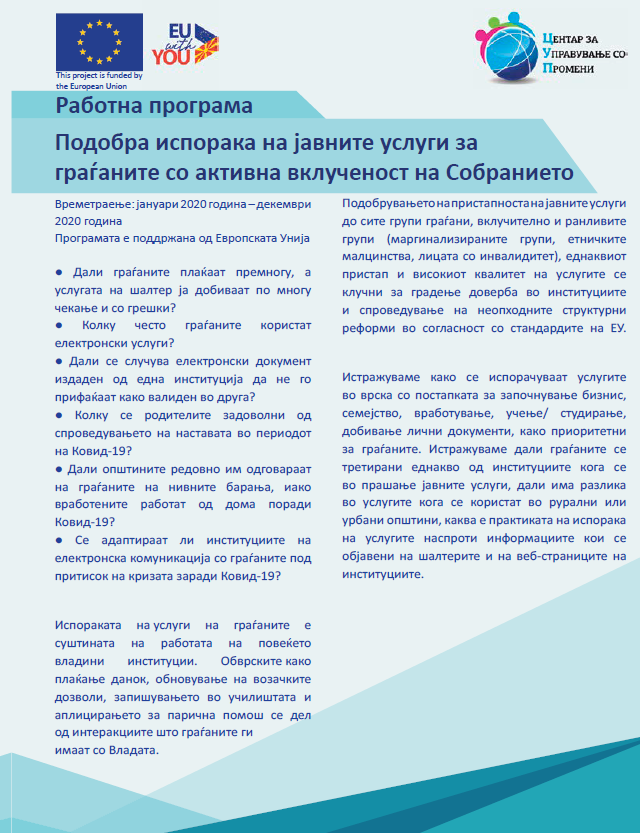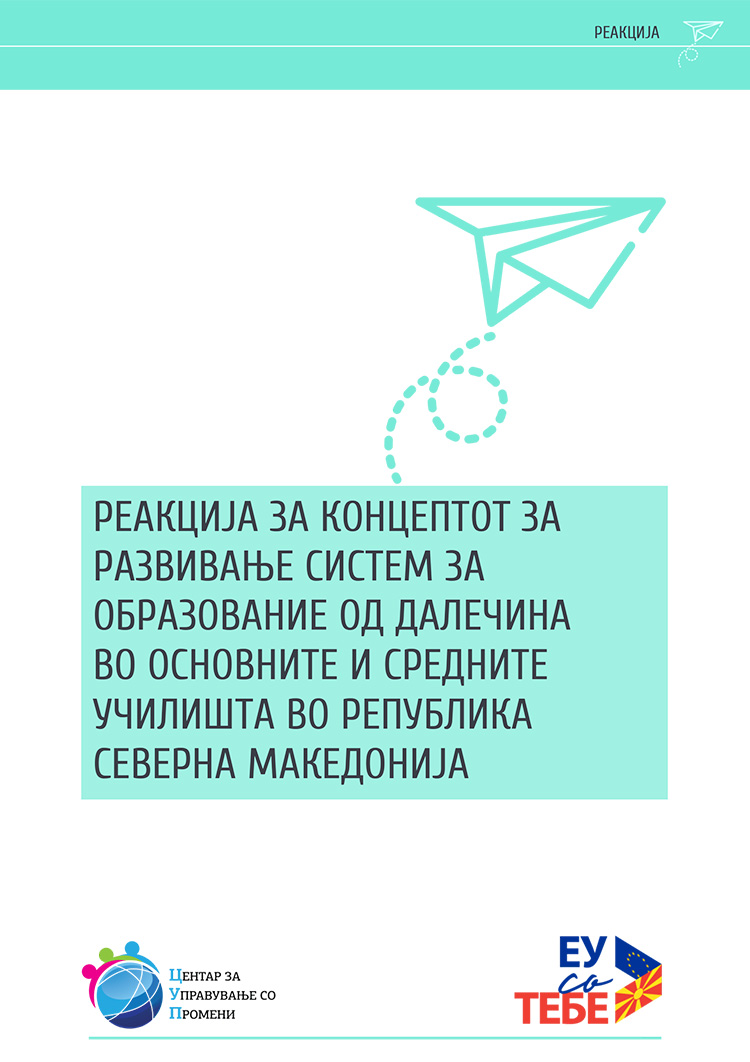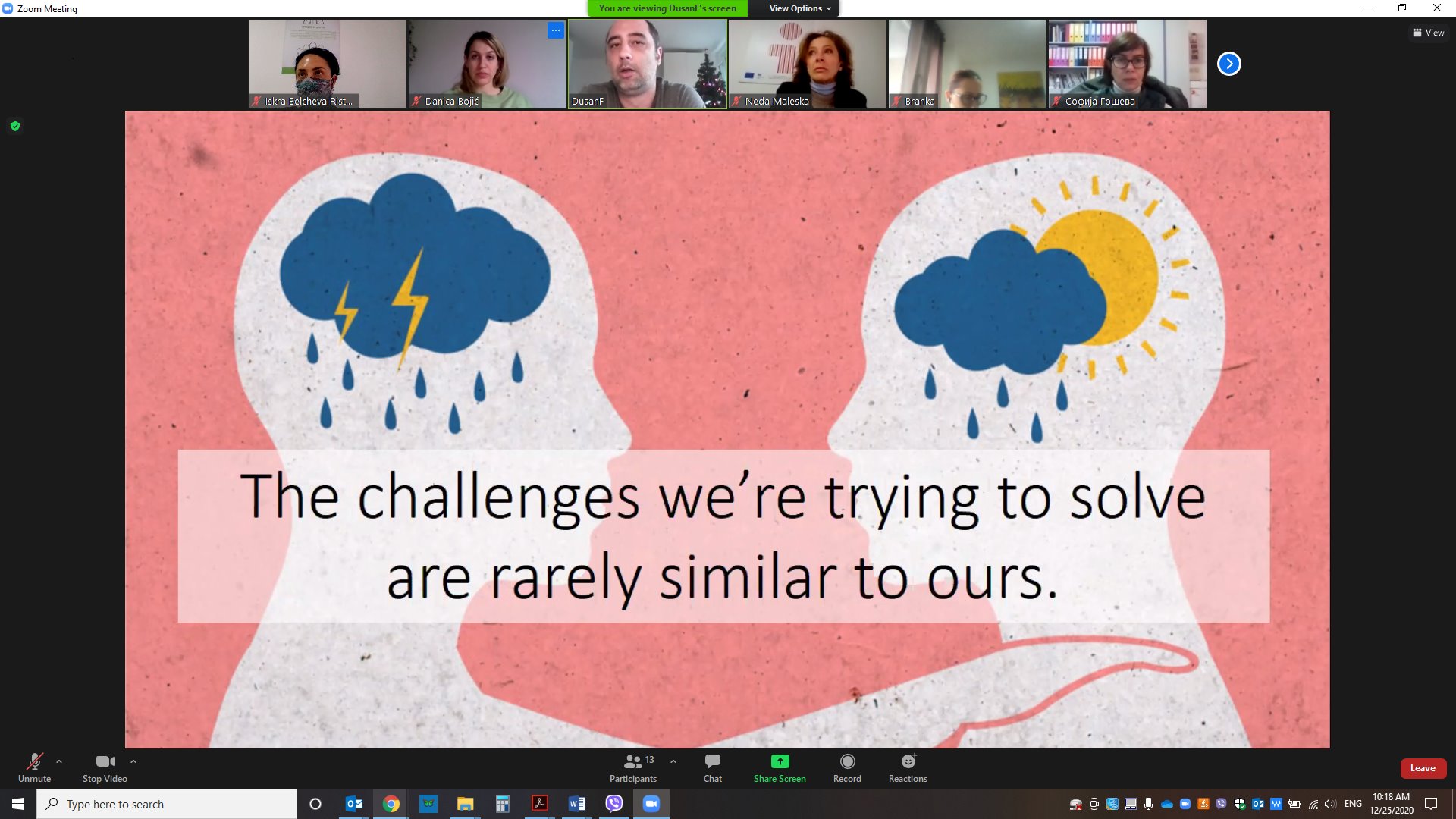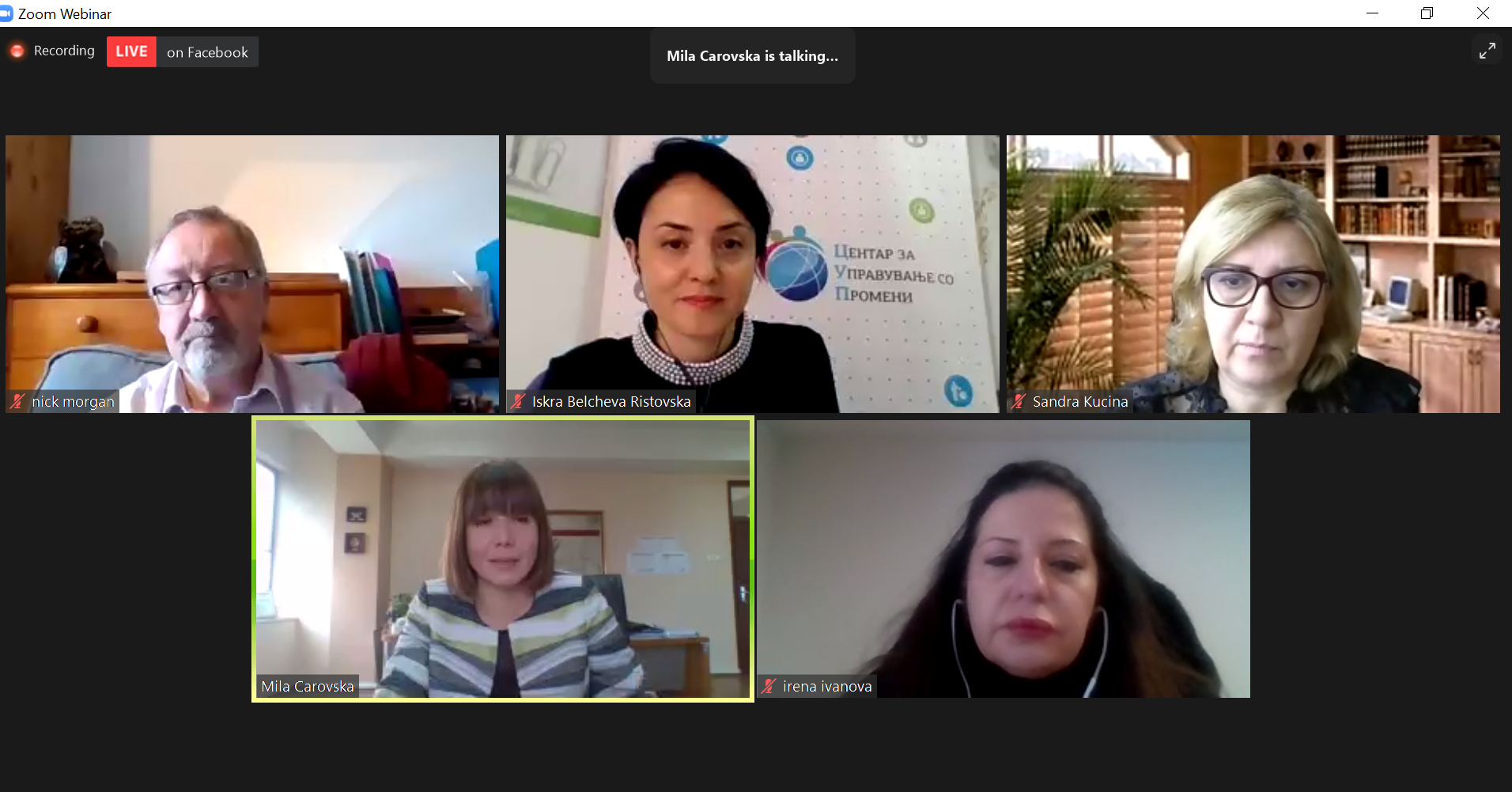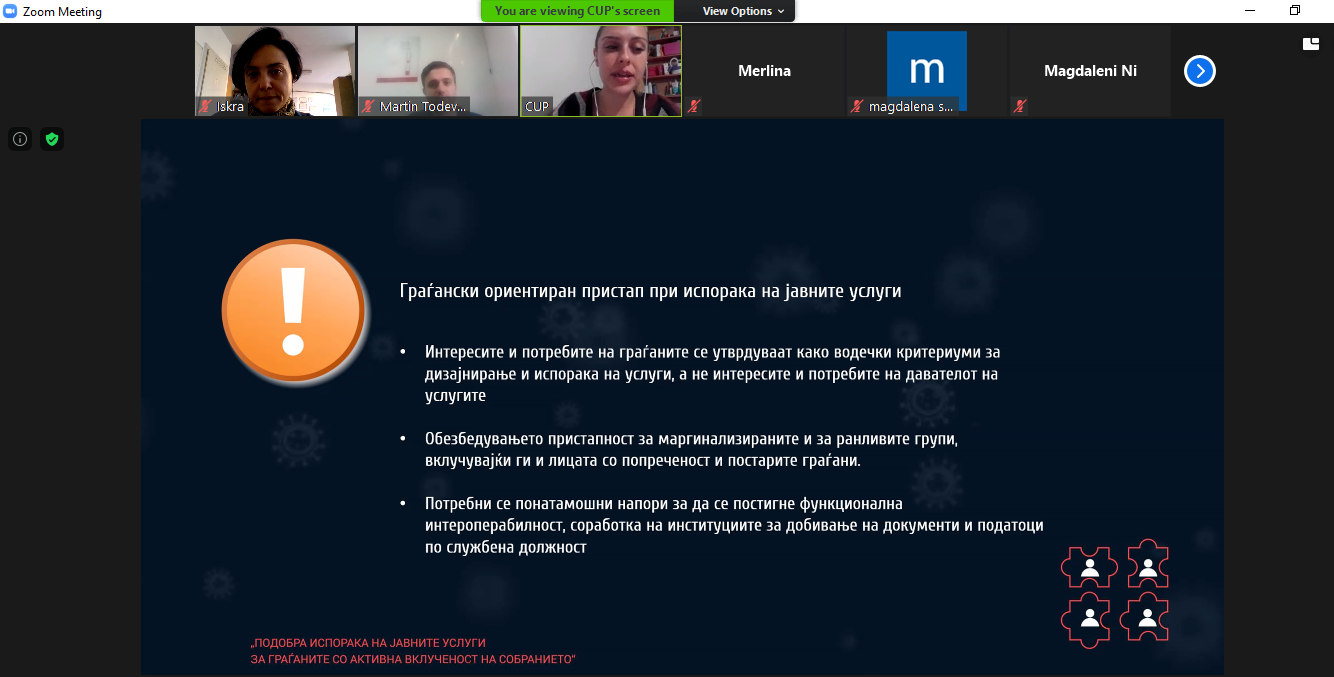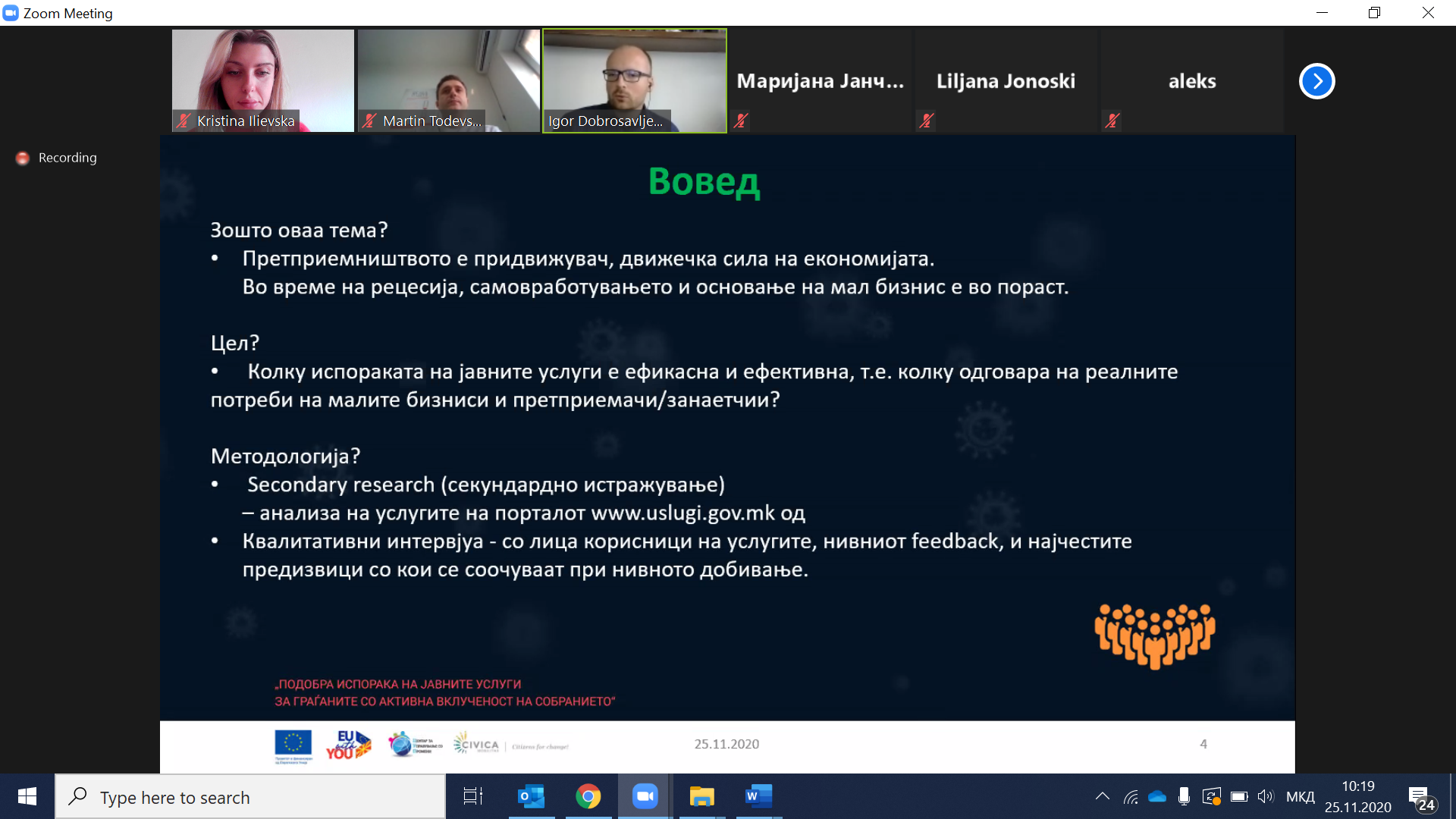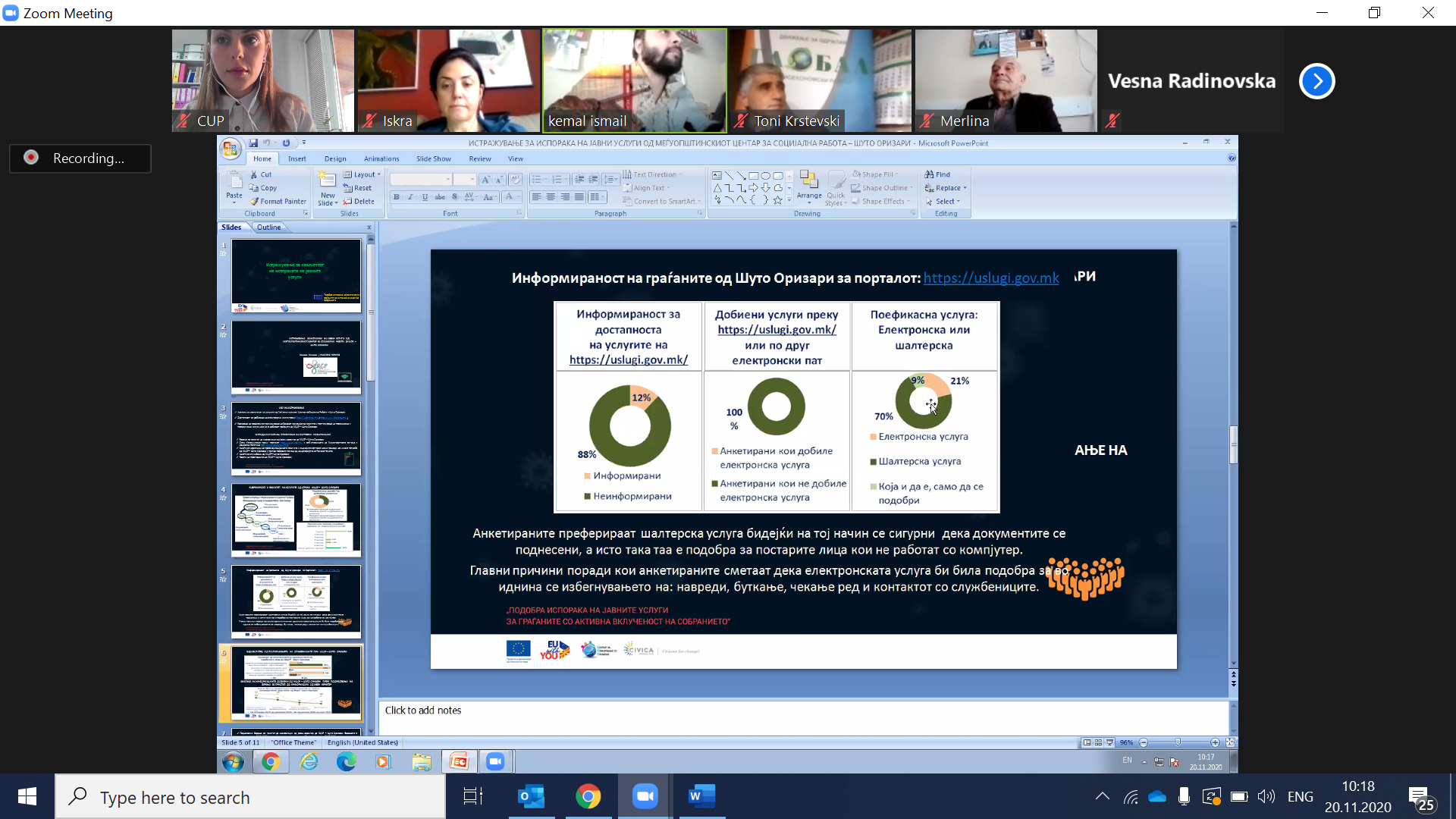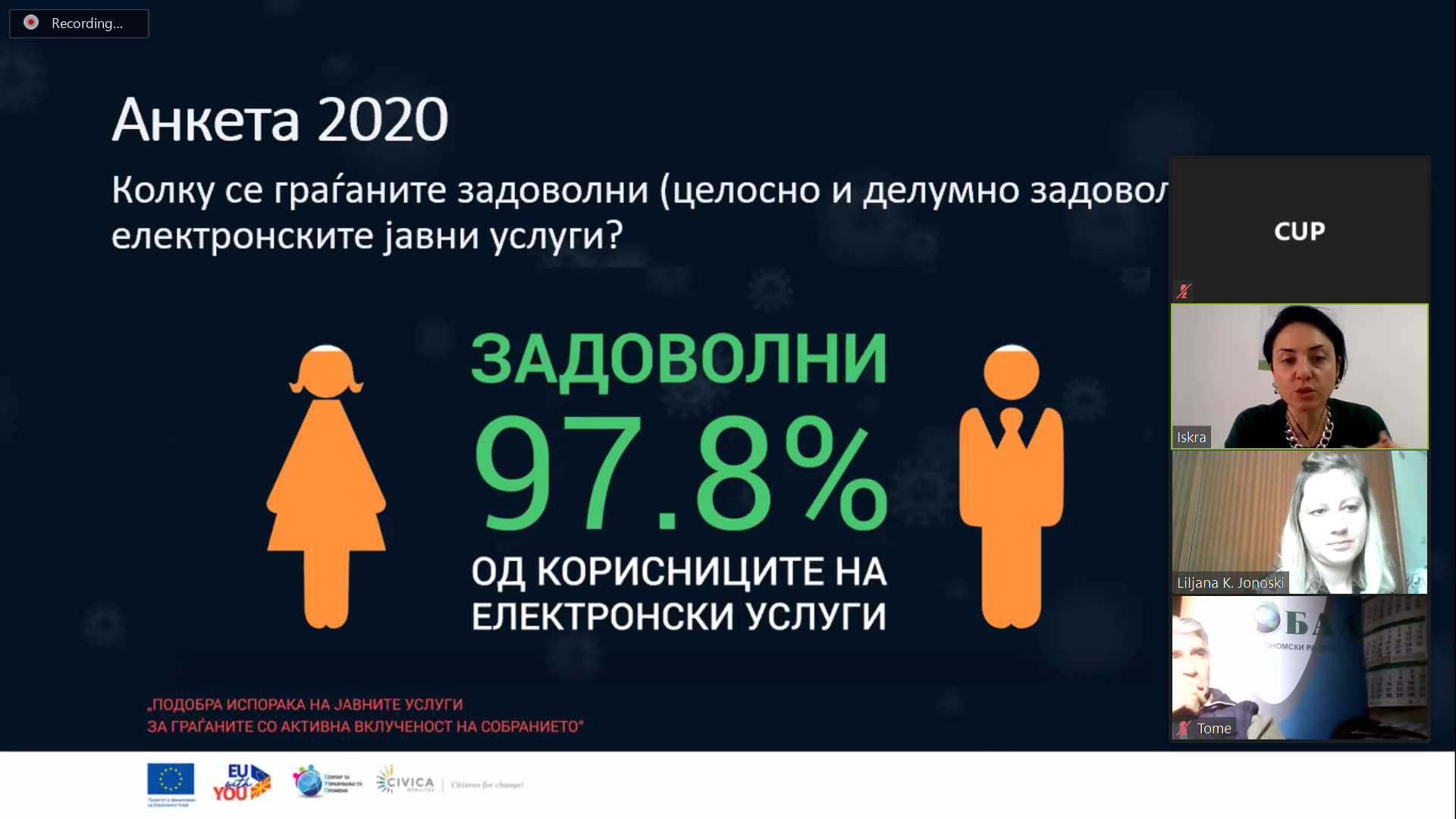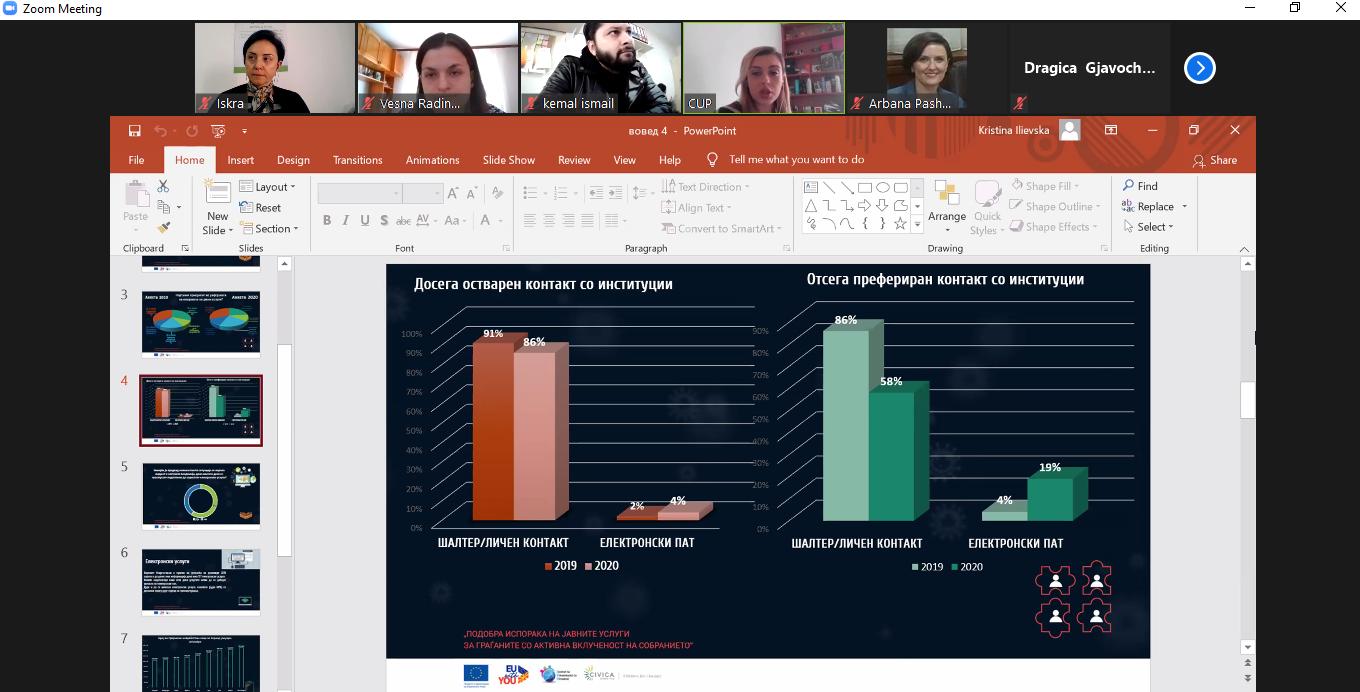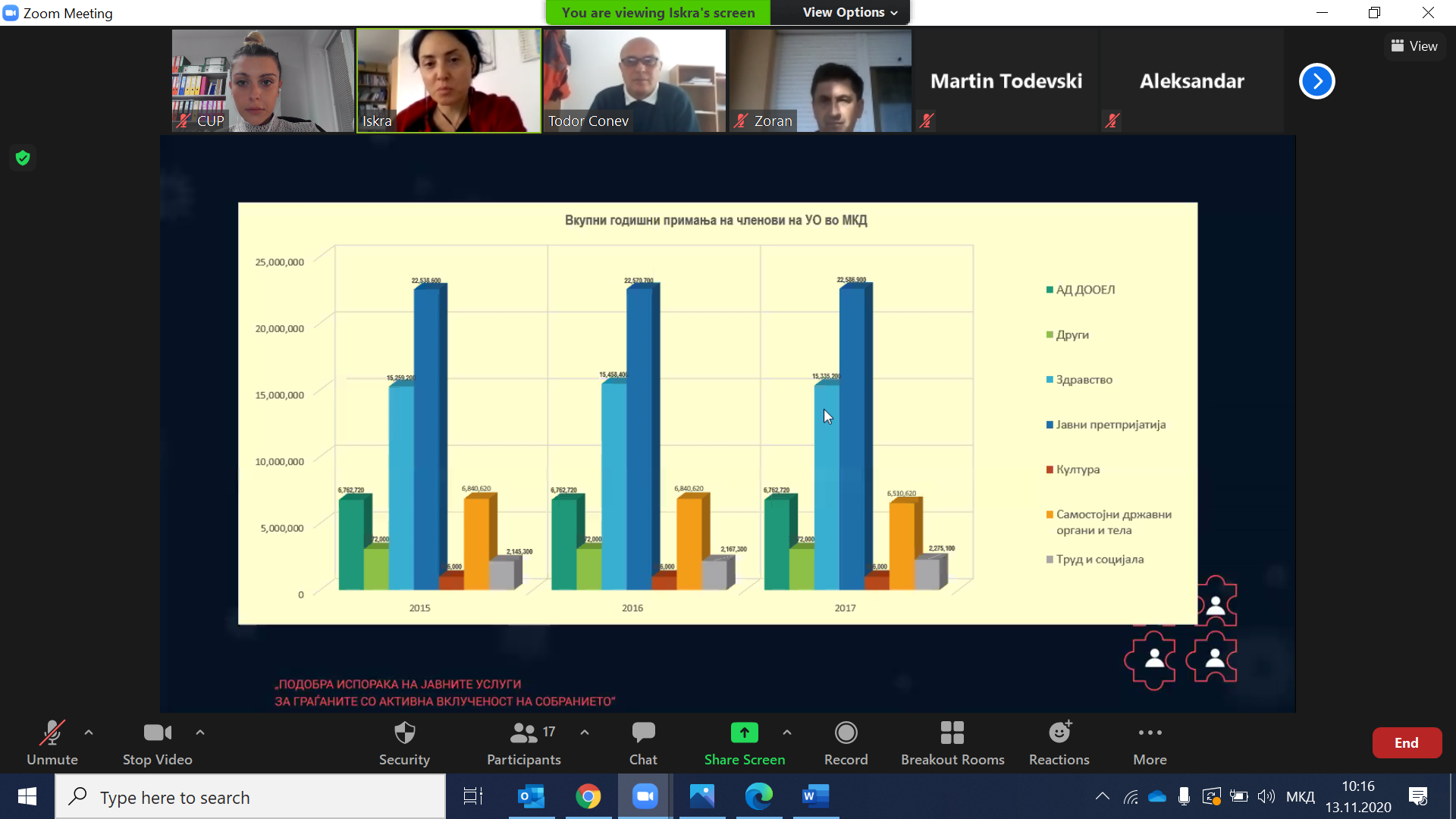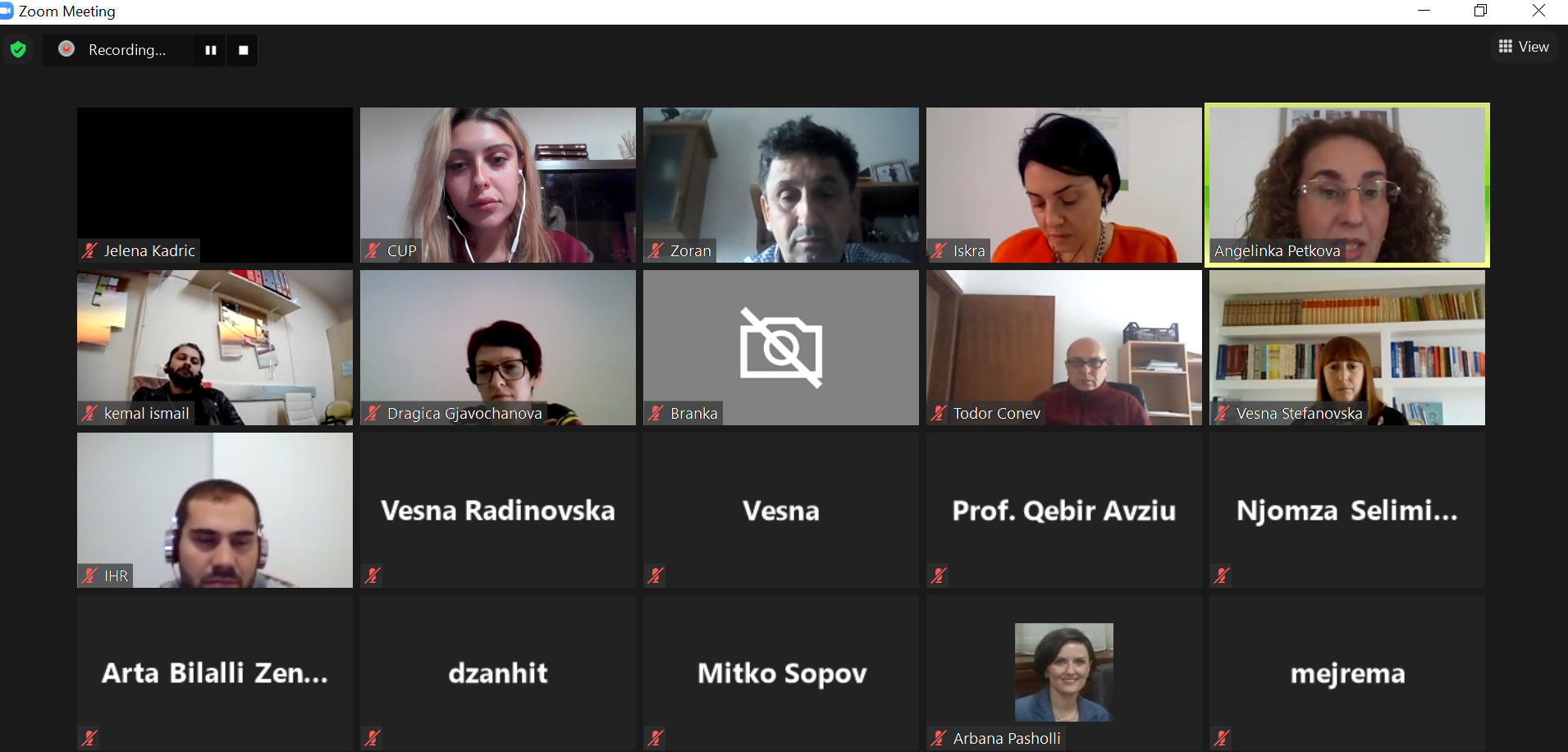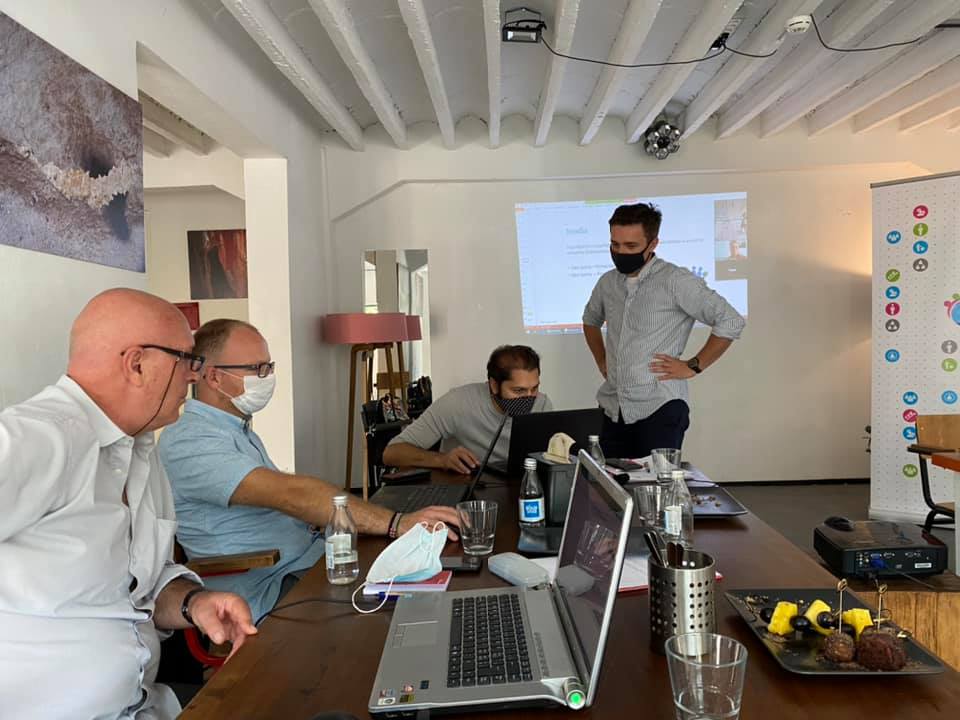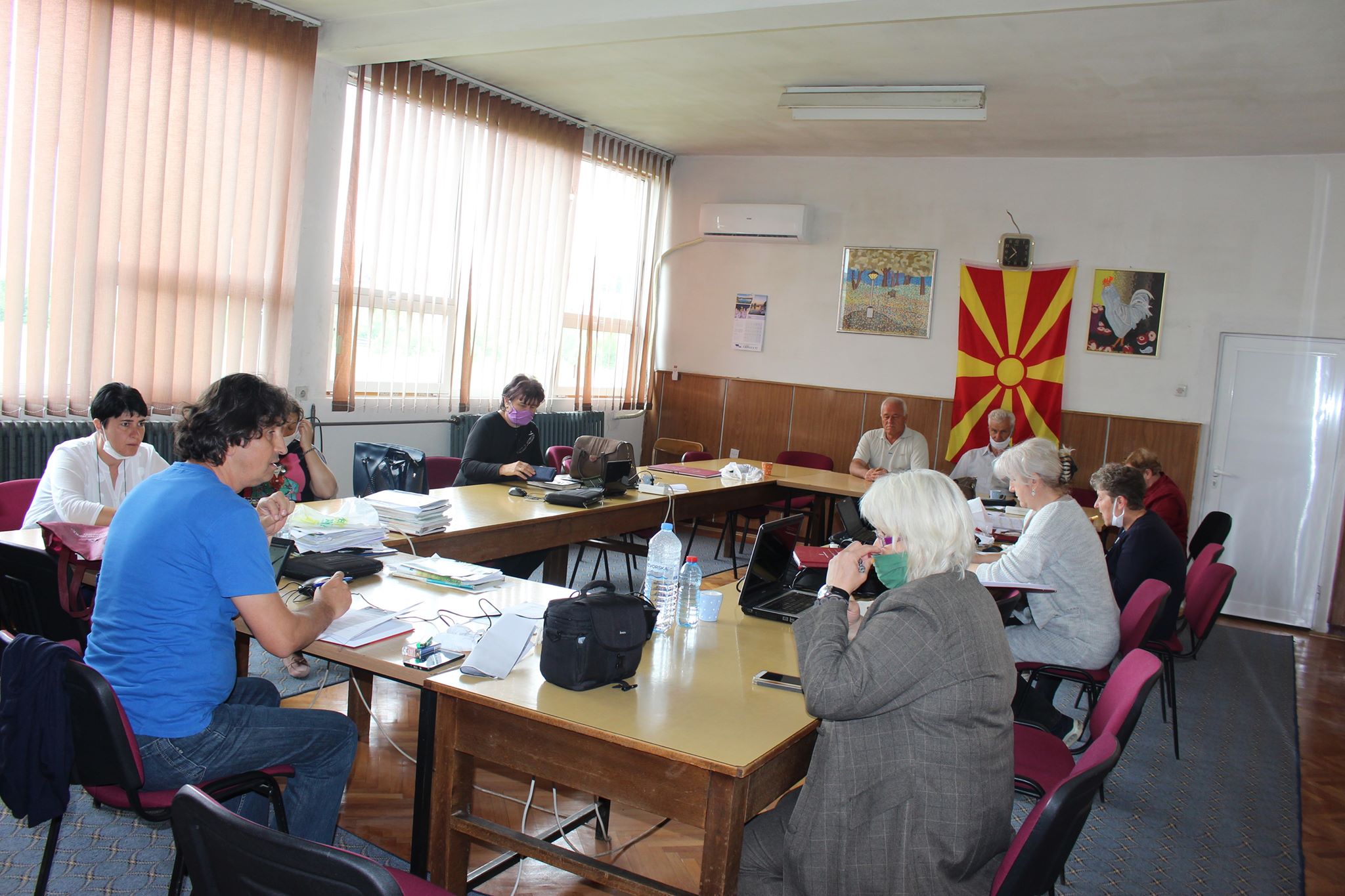Projects
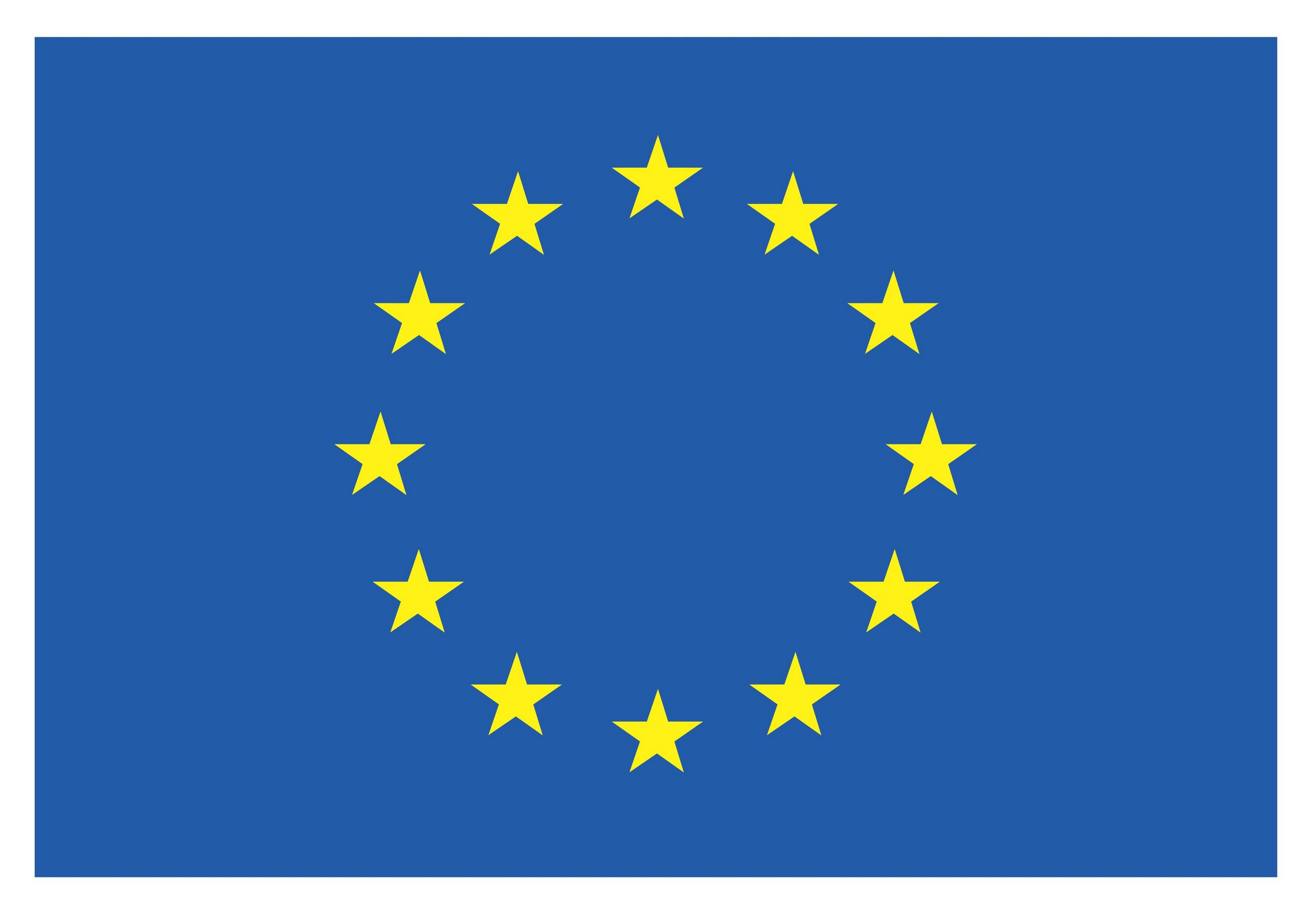
Work programme: Improved service delivery for citizens by active engagement of the Assembly
Delivering services to citizens is the essence of the work of most government institutions. Tasks like paying taxes, renewing driving licenses, enrolling in schools and applying for benefits are often the most tangible interactions citizens have with their government. Improving accessibility of public services to all groups of citizens, including vulnerable groups (marginalized groups, ethnic minorities, persons with disability) is critical in building trust in government and delivering necessary structural reforms in line with the EU standards.
The focus of this programme shall be put on these services related to life events, more specifically 118 services relating to various life events, categorized in eight areas:
- Manner and procedure for starting a business (for example, preparing a business plan, gathering information where you can find support for starting a business, registration in competent institutions and funds, registration for a tax number, registering employees);
- Family (for example, obtaining birth certificates, obtaining personal documents, exercising parental rights);
- Employment (for example, exercising unemployment rights, advising on financial borrowing, labor market counseling, job search assistance, counseling for re qualification);
- Learning/studying (for example searching for educational programs, recognition of diplomas, scholarships, financial counseling, career counseling, practical work);
- Initiation of a misdemeanor procedure (for example obtaining accurate information about the procedure, evidences, rights of the party, deadlines, legal remedies);
- General business procedure (for example, obtaining detailed information about tax procedures, payment of contributions, accounting procedures, financial statements);
- Owning a vehicle and driving (for example, buying, importing, registration of a vehicle);
- Moving (for example, changing personal documents, obtaining information about public services at the place of relocation, such as schools, hospitals).
The activities in the work programme on improving public services largely encompass strengthening the capacities of CSOs for safeguarding citizens’ interests and their fundamental rights, thus contributing to one of the pillars of modern democracies – accountable, transparent, participatory, inclusive and effective public administration with high quality of service delivery for citizens. The work programme provides a participatory process, led by CCM in close cooperation with civil society organisations’ networks and competent institutions in order to identify policy measures to ensure access to all citizens to improved, more secure and more efficient services.
Period 01.01.2020 - 31.12.2020
Donor: European Union
Project beneficiary: Civil society, citizens, MPs.
Main goal:
Тo contribute towards improving quality of public service delivery for all citizens in the country.
Expected results:
Outcome 1 – Ensuring the watchdog function of the civil society in most relevant services for the citizens
Outcome 2 – Increased citizen and civil society dialog with MP’s and enhanced oversight role of the Assembly for improved quality of public services
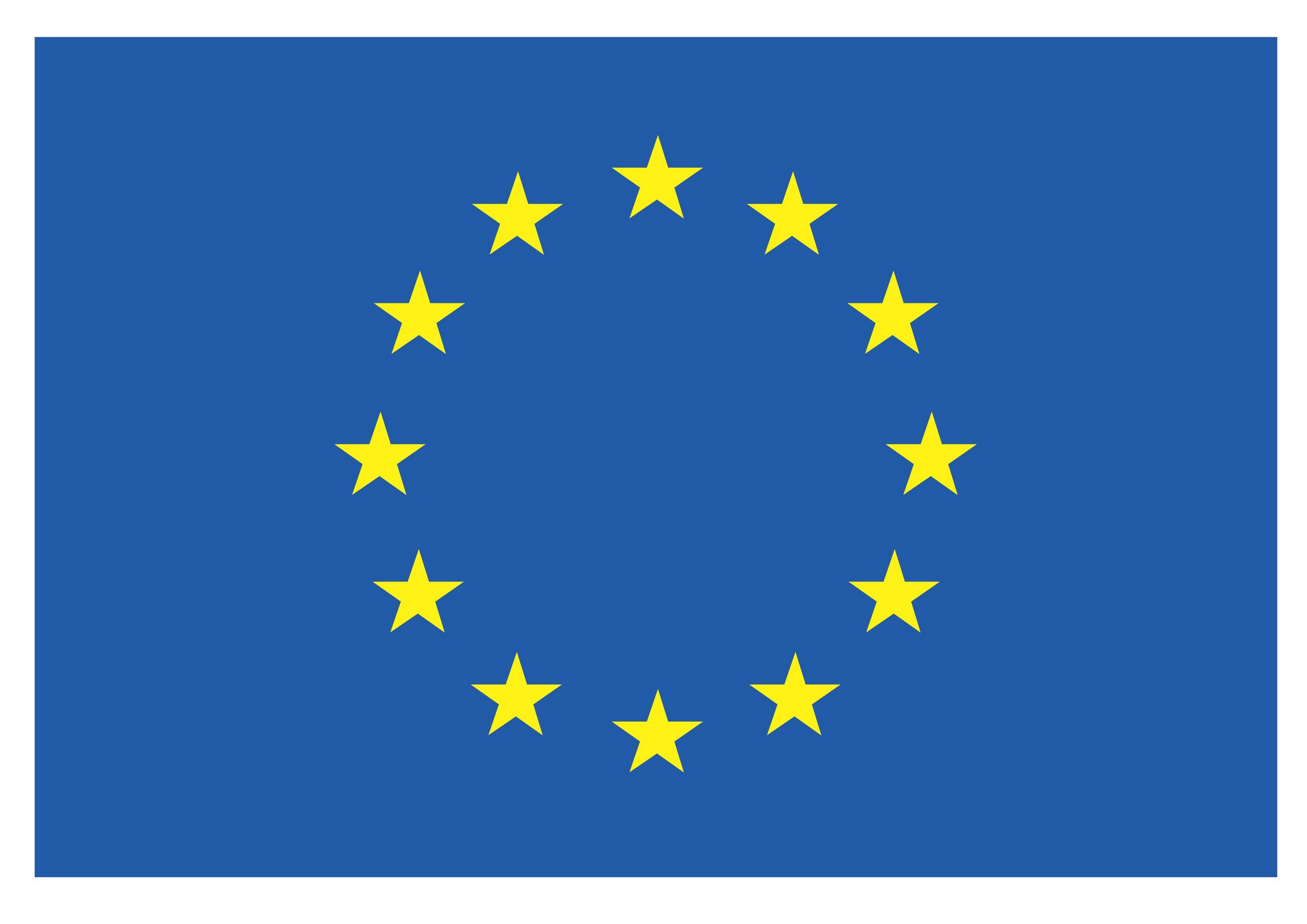
This project is funded by the European Union
Project gallery
Debate on the topic: Resilience and adaptability of the education sector in the Republic of North Macedonia
Do entrepreneurship and business start-up services from individuals fit the modern way of life and doing business?
Research on the delivery of public services in the Inter-Municipal Center for Social Work Suto Orizari
Video
Public debate: Resistance and adaptability of the education sector in the Republic of North Macedonia
At the debate together with the Minister of Education and Science Mila Carovska and the experts Nick Morgan from Scotland and Sandra Kucina Softic from Croatia,we talked about how the countries in Europe, including our country, coped with the sudden changes in the education sector, ie the change from classroom to online teaching. We shared the experiences from the implementation of distance learning in our country as well as in Scotland and Croatia, talked about the opinions and experiences of teachers, parents and students, which are part of the whole process and agreed on the importance of digital literacy and on which level is in our country, and at which in more developed countries.
It is necessary to modernize or digitize education in all segments and services, as well as reforms that will create an easily adaptable teaching process in times of crisis.
Campaign "November- month of public services discussions"
"November - a month of public service discussions." Together with partner organizations, we conducted public service research at central and local levels. The purpose of these discussions is to provide an overview of all identified problems before decision makers and public institutions, findings, but also recommendations from researchers to improve service delivery in many selected areas of society. The recommendations provide a basis for initial steps to improve some of the analyzed services, and before that to open a public discussion for modernization of services for citizens. The Assembly has an obligation to supervise the work of public institutions from a functional, financial and in terms of implementation of the planned reforms, hence the delivery of services to users, and the basis for oversight hearings can be data and information from civil society organizations. Such synergy is not only a modern way of broad involvement of citizens in policy making and monitoring, but also a jointly strengthened influence for the implementation of reforms for the benefit of citizens.
Initiatives
The Center for Change Management (CCM) has introduced a new tool to encourage citizens to make changes in the public sphere by submitting initiatives on our website. You need to design and enter your initiative on our website and start spreading the idea of change, you can also support the already published initiatives. It takes 500 supporters for the initiative to reach to the decision-makers.


